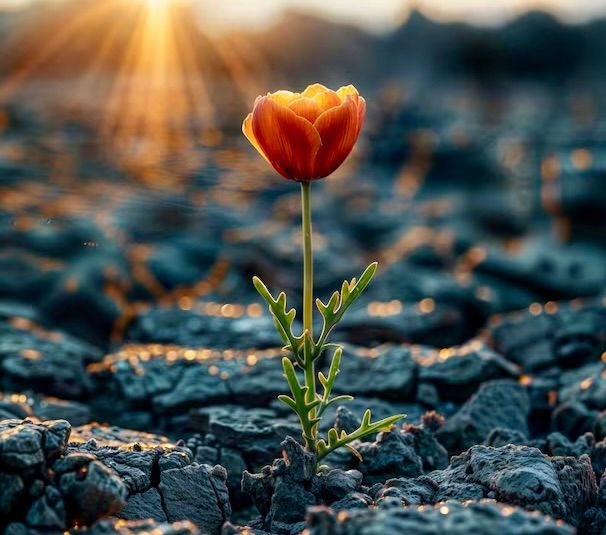It's No Sin To Be Sad
August 21, 2025
Sign up for blog updates!
Join my email list to receive updates and information.

The worst of times can bring out the best in us.
She was young, tall, and supremely elegant but weak and thin from weeks of surgery, chemotherapy, and radiation. She wrote the loveliest poem I’ve heard in a long time and wept as she read it to me. It’s miraculous, I thought when she and I were together to talk poetry last week, how such beauty blossomed from the dark humus of her disease.
In guiding cancer patients to write poems to ease their emotional trauma, I witness how the rude rigors of cancer treatment magnify emotions and set them very close to the surface. Right beneath the breastplate, it seems, hard against the heart. So expressing feelings in poetry comes more easily than otherwise.
In addition to teaching cancer patients and their caregivers, I conduct workshops in healing poetry for people who are dealing with all sorts of emotional trauma. The phenomenon of heightened creativity applies to all of them. Perhaps due to the fact that all emotional trauma exhibit common characteristics: unexpected, unwanted, and seemingly beyond our ability to make them stop.
I continue to be awed at how men and women with no background in writing can craft breathtaking poems that grow out of the fertile soil of their suffering.
They are testimony to what I always tell them: “What you learn in this room will not lead you to poetry as much as what you bring with you into this room.”
The myth of the suffering artist is misleading. It’s not suffering itself that produces creativity, but the psychological growth and awareness that arise from it.
In her 2007 book When Walls Become Doorways, psychologist Tobi Zausner writes:
“Life’s lowest moments can hold our greatest potential for creativity and transformation. When the wall of illness becomes a door of opportunity, the worst of times can bring out the best in us.”
As an aside, you should know that when Zausner was diagnosed with the most aggressive kind of ovarian cancer in 1989, she was told she would not last the year. Instead, her life changed for the better and she completed a doctorate in art and psychology.
The healing poetry I teach is founded on the discipline of Expressive Writing developed at the University of Houston and replicated more than 2,000 times.
The premise: writing for just fifteen to twenty minutes a day about a topic that triggers strong emotion has been shown to help people garner meaning and a measure of relief from their stress.
Marcel Proust was on board with the idea long ago. He wrote:
“Ideas come to us as the successors of griefs. And griefs, at the moment they change into ideas, lose some part of their power to injure the heart.”
Author Mark Nepo stresses that we cannot choose to indulge solely in happiness. He writes:
“If you are thirsty, you can’t dip your face to the stream and say, ‘I’ll only drink the hydrogen and not the oxygen.’ If you remove one from the other, the water cannot remain water. The life of feeling is no different. We cannot drink only of happiness or sorrow and have life remain life.”
My Catholic faith advises me to “offer up” any suffering that comes my way in order to remove its weight from my shoulders. I say no. I say embrace sadness and suffering. It’s a portion of our humanity and has yielded some of our most creative achievements as a species.
As proof, here’s the young woman’s poem that took my breath away last week, drawn from her experience with radiation treatment:
I settle into the bedthat is not a bedinto the cradlethat is not a cradlenestling deeper like a pine coneon the forest floorthis bed that is not a bedholds nosweet dreamsor lazy Sundayscookie crumbsor lovemakingthirty seconds until your first beama crackly voice announcesbang whirl whooshit’s happening nowI imagine light gliding through mefilling mespilling out of methe machine quietsI suppose I am healed now
As Dr. Zausner puts it: “When the wall of illness becomes a door of opportunity, the worst of times can bring out the best in us.”
